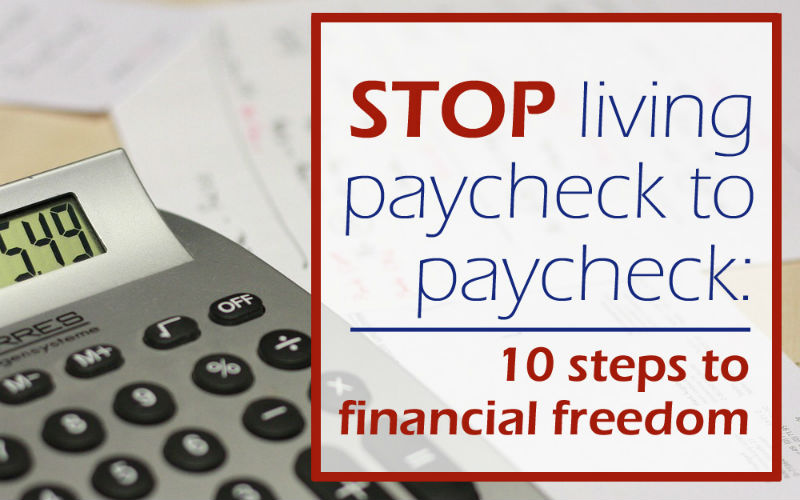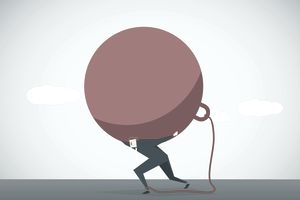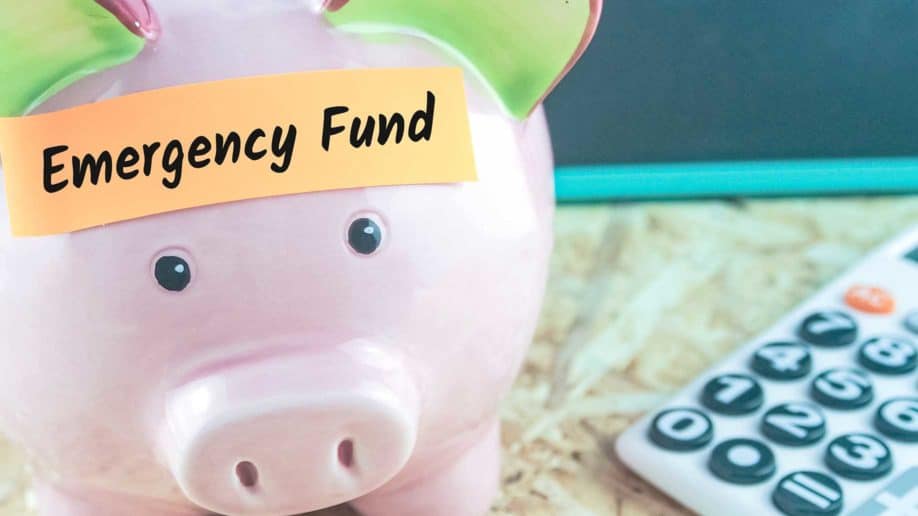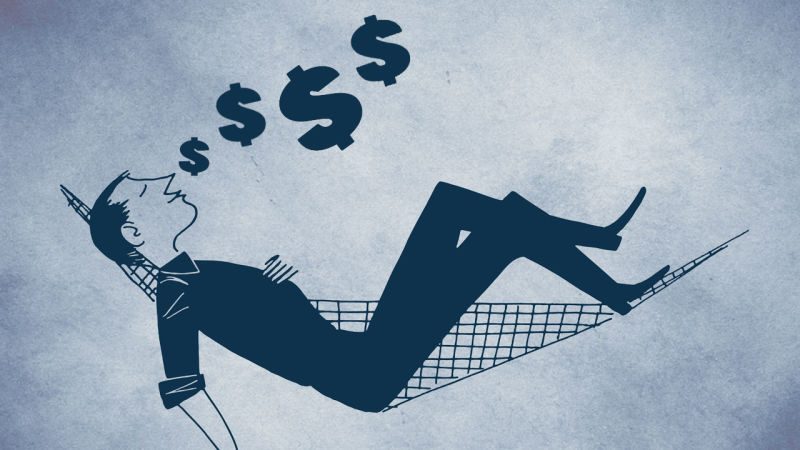
We’ve all been through it: living paycheck to paycheck. Maybe you haven’t been in that situation since college. Maybe you grew up in a home where money always seemed tight. Maybe you’re living this right now. Whatever the case, living paycheck to paycheck can not only be frustrating, but damaging to your long-term finances. Here is how to stop living paycheck to paycheck in 10 steps.
Step 1. Identify All Debt
First, you need to know how much of your income is going toward repaying debt (with the exception of your mortgage). When you add it all up, you might be surprised at what percentage you’re dedicating to debt…rather than living your life. Use that number as a motivator.
Step 2. Where is Your Money Going — ALL of it?
To find out, first consider two categories: essentials and extras. To figure out where your essentials money is going, add up all essential bills (rent, mortgage, power, heat, food, water, medical, transportation, debt payments, etc.). Write it all down, then identify where your extra money is being spent, such as entertainment, clothing, etc. It’s a good idea to put all those purchases on a debit card for the month and then use that as a record. Or, if you make purchases this way already, use last month as your example. This step is vital, because it will help you determine whether you’re even making enough money to pay for your essentials.
Step 3. Are You Making Enough?
Now that you’ve got your expenses broken out, add it up and compare to what you’re actually brining home every month. Are you making enough money to cover the essentials, or is just living day to day actually putting you further into debt? If that’s the case, you need to either make more money with a new job or second income, or relieve some of your payments by selling cars, canceling gym memberships, etc. There’s actually a better chance that you ARE making enough, but making poor spending choices. Examine your spending to see where you can cut back.
Step 4. Be Honest About Bad Habits
Are you an impulse buyer? Love to shop? Are you using your credit card to delay having to pay up for things you don’t actually need? Do you feel like money burns a hole in your pocket? It’s time to be honest with yourself about the bad habits that aren’t helping your finances.
Step 5. Stick to a Budget
Budgeting can be a tedious and totally un-fun process. But if you want to stop living paycheck to paycheck, it’s absolutely necessary. Be honest about what cuts you can make in your budget, and then stick to it. It’s not forever — you’ll have room for more fun things in the budget once you’re out of the paycheck to paycheck trap.
6. Pay Down Debts
This might be the most tedious financial decision you make, but once you start paying down your debts, the rewards will show. If you can sell a car, do it and watch how your budget frees up. If not, put as much money as you can on your debts until they’re paid off. Start with higher interest debts like credit cards first, or being with the smallest loan amount. When one thing is paid off, take the amount you’ve been paying on it and add it to your next debt payment. It’s called a debt snowball, and it’ll get you on better financial footing, fast.
7. Build Savings
Experts advise us all to have at least a month of expenses in the bank. This is going to take time to accomplish, but it’s well worth the effort, especially if you ever lose your job. You can even try selling stuff to build your savings.
8. Establish an Emergency Fund
This step might seem interchangeable with #7, and it could be. But an emergency fund, according to Dave Ramsey, is $1,000. Once you have at least that, you can start snowballing your debt knowing you have at least a small cushion in case of a real emergency, like an unexpected car repair (hint: Christmas is not an emergency).
9. Smart Investing
If you aren’t planning for retirement, you won’t really be financially free. If this stuff is over your head, consult an expert.
10. Teach Your Kid
No parent thinks to them selves, “Gosh, I sure hope my kids live paycheck to paycheck when they grow up.” That’s why it’s so important to teach your kids about financial literacy, even letting them help keep you accountable. Let them see what you’re doing to improve things, and show them the results.











Leave a Reply